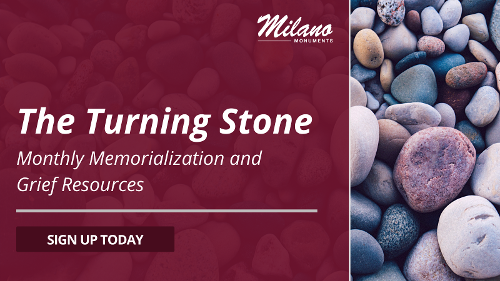Understanding how we follow through the intense feelings of sadness, especially after the loss of loved ones, can be particularly challenging for our mental and emotional health. Both grief and depression are similar in their own ways, and it can often be difficult to tell them apart.
Before exploring the common distinctions, it's important to first understand what grief and depression are individually.
What Grief Means
Grief is usually defined as a natural response to a significant loss and can be unique for anyone who is experiencing it. This response can often involve great stages of sadness, confusion, anger or denial depending on your situation.
Signs of Grief:
- Behavioral changes. Changes in social activities with friends or family may be limited to grief and can impact your daily routine.
- Fluctuating emotions. Emotions in this state can either be deeply intense or mild, depending on the person and cause.
- Physical symptoms. Low motivation, fatigue, little appetite and insomnia are all physical characteristics related to grief.
The Five Stages of Grief
Everyone universally experiences grief. Any life-altering change can most likely trigger feelings of grief amongst yourself or loved ones.
The Five Stages of Grief were created to help us identify and understand what we may feel after a loss. While these five stages may not align with everyone's individual experience of grief, they are a commonly used framework for understanding the grieving process. These stages often include denial, anger, bargaining, depression and acceptance, which are explained below.
- Denial. This first stage of the grieving process involves not believing the reality of a loss. This can lead to numbness or great shock amongst those affected and is the body’s natural defense mechanism.
- Anger. Once denial has faded, frustration and anger fill its place. This anger can be directed at family members, yourself or the situation at hand.
- Bargaining. In this stage, you may try to reverse a devastating loss. Statements of “what if” and “if only” can act as a form of compromise or negotiation to comfort the grieving. Therefore, we try to exchange the deep feelings of sadness for any sort of better outcome.
- Depression. Although different from grief, depression can be a stage in the grieving process for some. Depression is characterized by a deep mourning and hopeless feeling. The emotional pain from a loss can be too great to avoid depression of any kind, which is why it's usually prolonged.
- Acceptance. The final stage involves coming to terms with the reality of the loss of a loved one. We may acknowledge ways to move forward and live our lives in a new environment of change. This change can include finding normalcy and ways to remember those who have passed.
>>> Related Resource: 30 Supportive Phrases to Say to Someone Who is Coping with Grief
What Depression Means
In contrast to grief, depression is described as a deep, prolonged sadness diagnosis which impacts daily functionality. It is also known as a medical condition impacting your mental health. Behavior and physical appearance can also be signs of depression along with cognitive thinking.
Someone who is diagnosed with this mental condition feels as if they are worthless in some instances. This unworthiness can cause symptoms of constant sadness, changes in routine, loss of interest and fatigue.
Signs of depression include:
- Persistent isolation. The weight of despair and sadness can seem endless, relentlessly pulling you down.
- Difficulty concentrating. Indecisiveness and struggling with focusing and memory due to poor brain functionality.
- Feelings of unworthiness. Excessive guilt and hopelessness are linked with this characteristic of depression and is often known to not have a solution.
- Chronic fatigue. Having a lack of energy can make you feel as though even the simplest task is impossible to complete, including oversleeping or not getting enough rest.
How To Tell Depression from Grief
We know understanding these emotional responses can be difficult, especially after experiencing the loss of someone close to you.
Pointing out the differences amongst depression and grief is significant for recognizing the necessary treatment options. Although both involve deep sadness and pain, the nature of these mental responses is different.
For example, depression can be more persistent over time and can have no direct link to specific memories. On the other hand, grief is directly associated with loss, causing emotions to come in waves.
While you experience grief, you may still feel the same joy and optimism you once felt before, but with depression, there is no sign of that joy. There will also be sustained low functionality and motivation with depressive symptoms while grief allows us to slowly resume daily activities.
>>> Related Resource: How to Deal with Grief on Specific Days of the Year
Seeking Help for Grief and Depression
While Milano Monuments is not a certified healthcare provider, finding help and treatment for those going through these symptoms is recommended. We advise contacting a mental health professional for treatment of those experiencing grief or depression.
Get Grief Support Resources Straight to Your Inbox
Looking for more ways to honor your loved ones and find support during times of grief? Sign up for our monthly newsletter to discover additional symbols like the cardinal that can help you throughout the memorialization process.





